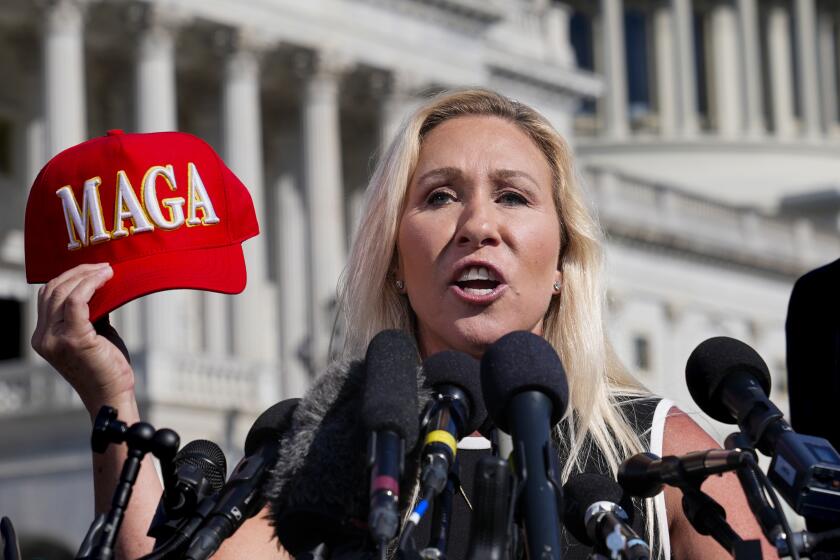House panel backs audits of Federal Reserve
A House committee voted overwhelmingly Thursday in favor of a measure opposed by the Obama administration that would subject the Federal Reserve to unprecedented scrutiny.
The 43-26 vote by the House Financial Services Committee came as the administration’s push to enact sweeping changes to the financial regulatory system encountered stiff resistance on Capitol Hill amid growing discontent over the economy and efforts to speed its recovery.
President Obama’s allies in the Black Congressional Caucus, exasperated by the administration’s handling of the economy, unexpectedly blocked one of his top priorities, using a legislative maneuver to postpone the approval of financial reform legislation by a key House committee.
Two buildings away, at a session of the Joint Economic Committee, Republicans escalated their attacks on Treasury Secretary Timothy F. Geithner, including a call for his resignation.
“Conservatives agree that as point person, you failed. Liberals are growing in that consensus as well,” said Rep. Kevin Brady (R-Tex.). “For the sake of our jobs, will you step down from your post?”
And across Capitol Hill, some Democrats on the Senate Banking Committee said they had reservations about parts of a massive draft bill designed to achieve the most ambitious reworking of the financial system in decades. Republicans went further, faulting Sen. Christopher J. Dodd (D-Conn.), the panel’s chairman, for pushing ahead before the roots of the crisis were understood.
Especially troubling for the administration was the amendment added with bipartisan support to the House Financial Services Committee’s version of financial regulatory reform. Offered by Rep. Ron Paul (R-Tex.), the measure would allow the Government Accountability Office to audit all of the Fed’s operations, including its decisions on interest rates and its transactions with foreign central banks.
Paul and his allies in both parties are looking to increase oversight of an institution they view as partly responsible for the financial crisis.
Federal officials and many private economists worry that the amendment could make future policymakers more reluctant to take unpopular steps to prevent inflation or support the economy for fear of second-guessing by Congress and government auditors.
The House committee had been set to vote to send the final piece of its regulatory overhaul package to the House floor after months of debate. But the panel’s chairman, Rep. Barney Frank (D-Mass.), told committee members that passage would be delayed until Dec. 1 because the Congressional Black Caucus wanted the administration to do more to help African Americans suffering in the weak economy.
Frank told committee members that black lawmakers were “frustrated by the response to the economic situation by the administration.” He said the caucus had no issues with the legislation itself.
The caucus did not publicly detail its concerns Thursday, but one member, Rep. Maxine Waters (D-Los Angeles), said in a statement, “The recession has created a unique systemic risk that threatens all parts of the African American community, including the poor and the middle class.”
Dennis, Goldfarb and Irwin write for the Washington Post. David Cho contributed to this report.
More to Read
Get the L.A. Times Politics newsletter
Deeply reported insights into legislation, politics and policy from Sacramento, Washington and beyond. In your inbox three times per week.
You may occasionally receive promotional content from the Los Angeles Times.






